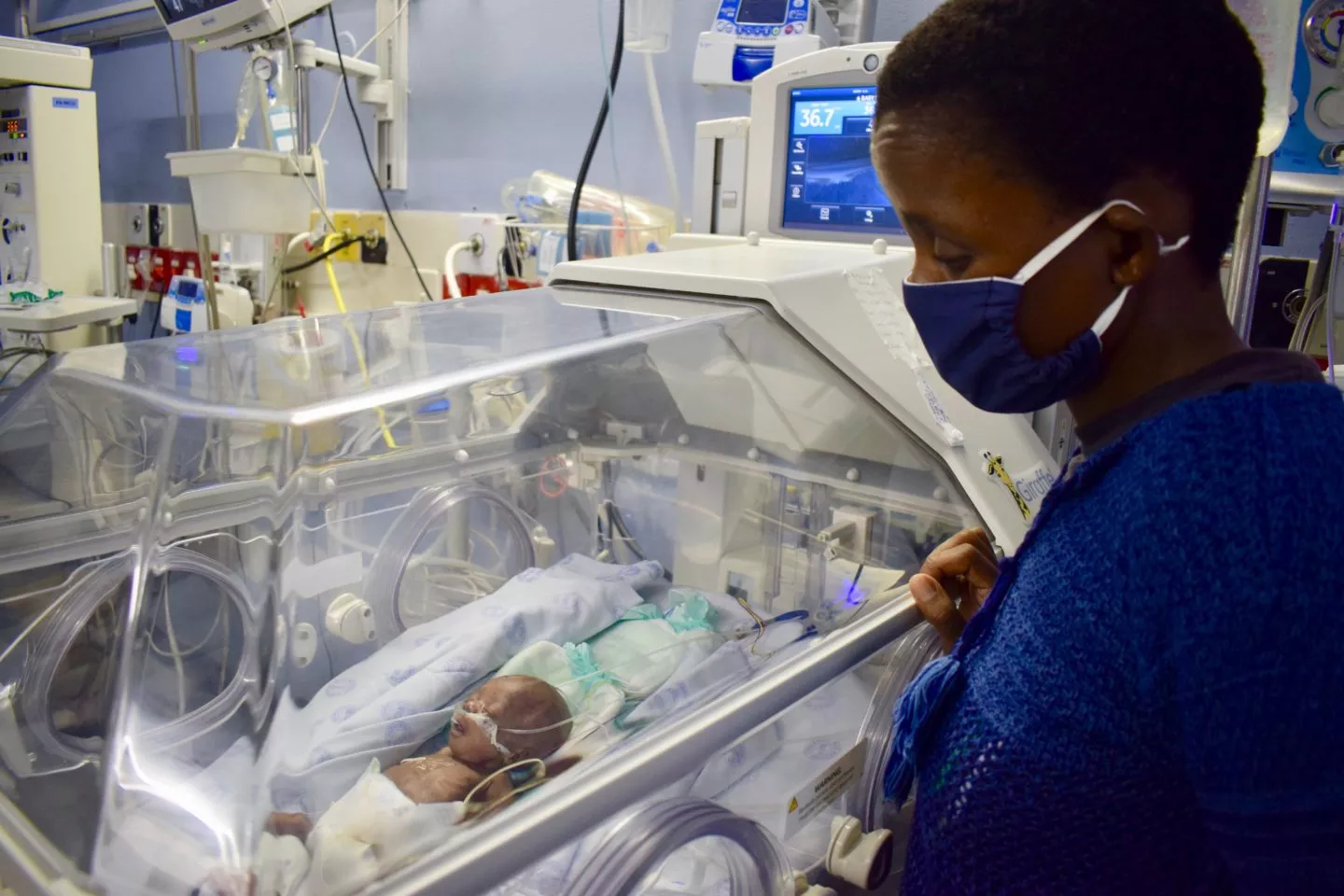Baby Okwenathi fights for his life against a drug-resistant infection in South Africa
Busisiwe Sibango had been keeping vigil by her baby’s bedside for six weeks.
Her son Okwenathi was tiny when he was born prematurely at 27 weeks (6.5 months) at Tygerberg Hospital in Cape Town. Soon after being born, he developed an inflammation of the intestines and was put on a course of antibiotics. He fought back bravely and overcame the inflammation, but then picked up a life-threatening antibiotic-resistant infection in the hospital. Faced with limited choices, doctors had to turn to the antibiotics of last resort to treat Okwenathi. The fragile newborn weighed less than one kilogram, needed oxygen by nasal prongs to support his immature lungs and had a central line catheter to receive the antibiotics along with other medications and fluids. He also contracted meningitis, an infection of the membrane lining the brain.
Due to a lack of rapid diagnostics, it was difficult to find the actual germs causing the infection as well as determine the effectiveness of the antibiotics that were being used. While caring for Okwenathi, doctors and nurses also had to take extra special care to ensure that the infection did not spread to other babies in the ward, which would have led to a disastrous outbreak.
Angela Dramowski, Head of the Clinical Unit: General Paediatrics at Tygerberg Hospital, Cape Town, said that Okwenathi’s story reflects the crisis in antibiotic resistance. “Over the past decade we have a seen a year-by-year increase in antibiotic resistance. We urgently need new antibiotic options. We are hopeful that the neonatal sepsis observational study carried out by GARDP and partners will go far in working out the best treatment options for babies, with the right dose and the least possible toxicity. This will help us in treating babies like Okwenathi.”
